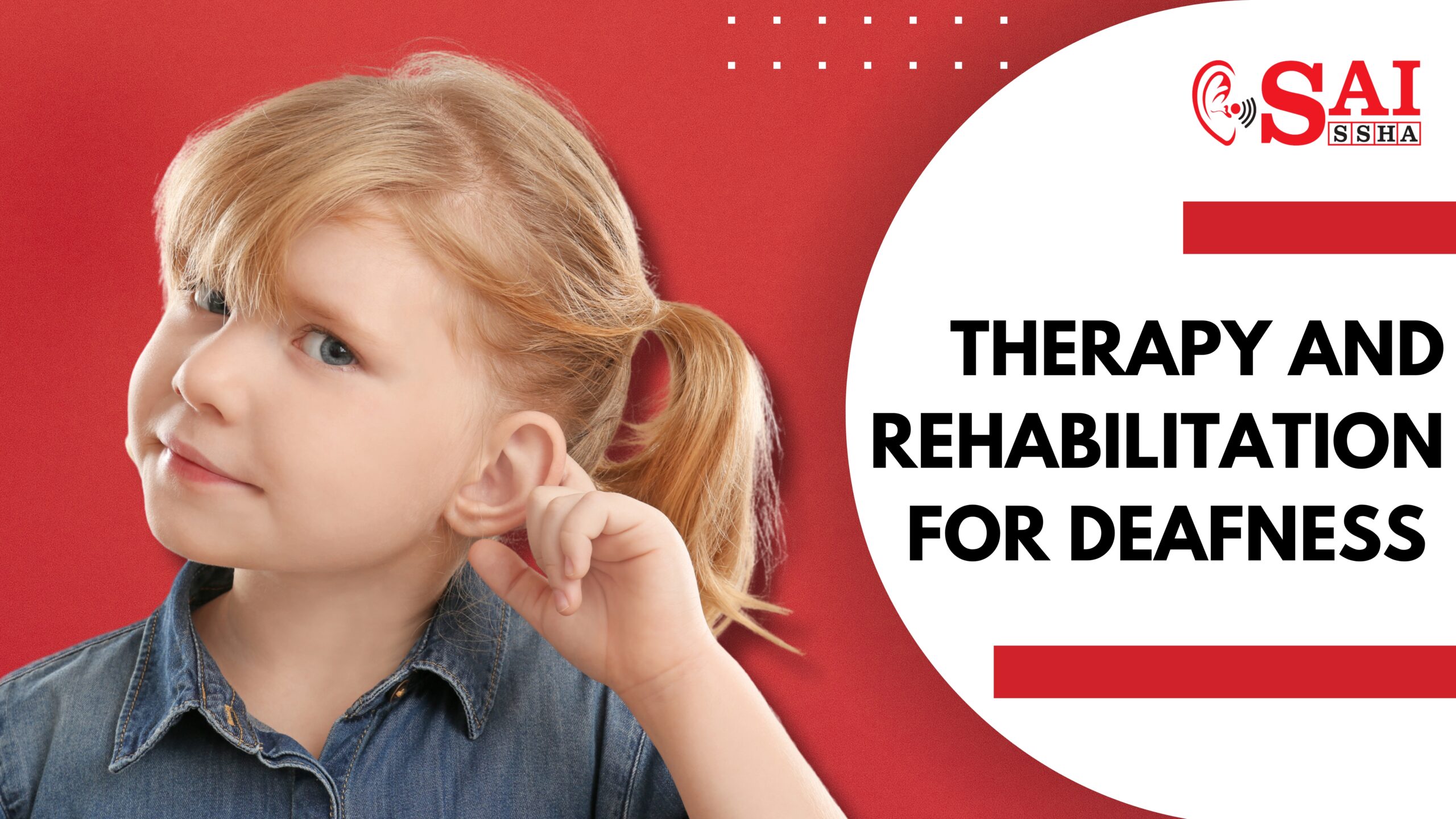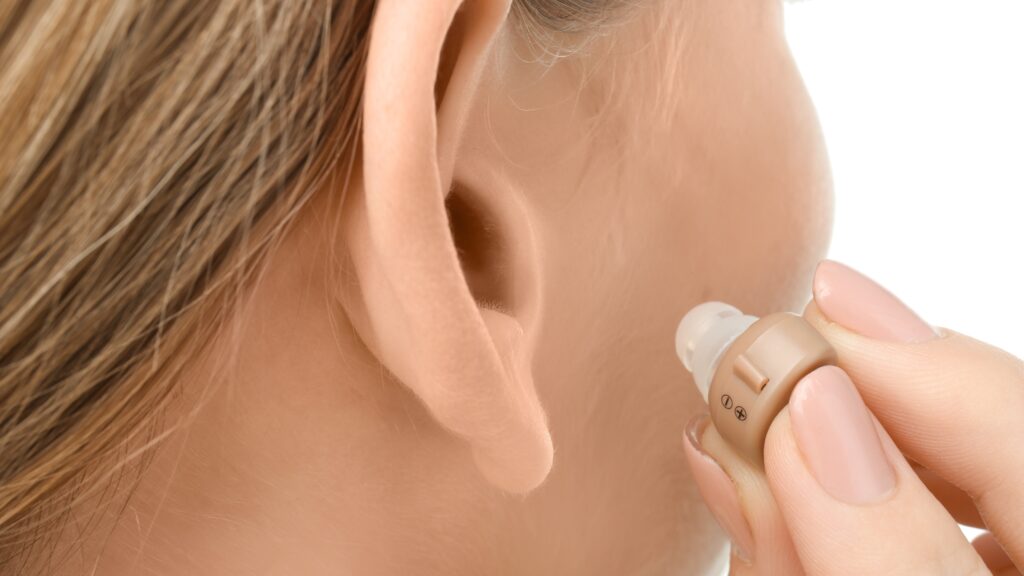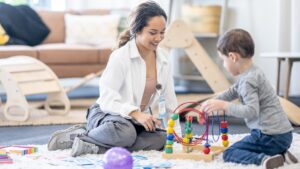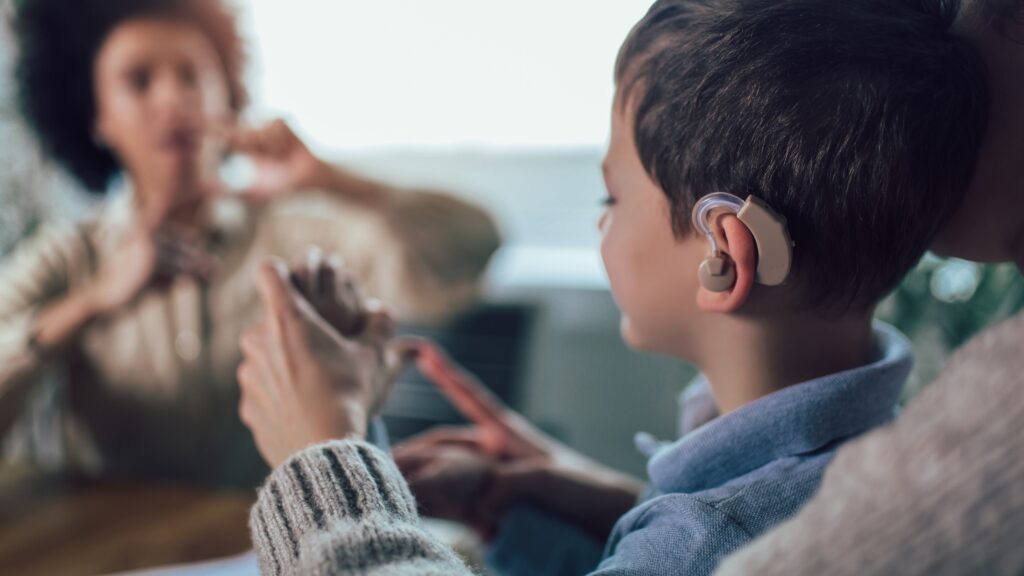

Introduction
Oftentimes, aural rehabilitation is a crucial part of treating hearing impaired people. It describes programs and practices that help people with hearing impairments communicate adequately, both receptively and expressively. For people to improve their communication skills, adjust to living with hearing loss, and improve their general quality of life, rehabilitation and treatment are crucial. In addition to providing tools like hearing aids, the objective is to maximize hearing and communication by providing thorough assistance and training.

Therapy for Speech-Language
Particularly for those with severe hearing loss, such as adults who have suddenly lost their hearing or toddlers with congenital hearing loss, speech therapy is essential. People who either gradually lose their hearing or who become deaf suddenly are treated by hearing therapists. Individual or group instruction in lip reading. counseling and suggestions for tinnitus management. Provide guidance and supply environmental devices, such as TV assistance and alarms. Therapy teaches patients how to manage their voice and articulation, which helps them speak more clearly.
Rehabilitation for Cochlear Implants
Cochlear implants can restore hearing to those with severe to profound hearing loss, although they frequently require significant rehabilitation after implantation. Auditory training is given to patients following cochlear implant surgery in order to assist the brain’s adaptation to the new auditory signals the device produces. Speech and Language Therapy , Following cochlear implantation, ongoing therapy aids in the development or restoration of speech and language abilities in people, especially youngsters.
Device management involves teaching cochlear implant users and their families how to properly operate, maintain, and troubleshoot the device.

Rehabilitation and Assistive Listening Devices (ALDs)
ALDs can be used in conjunction with cochlear implants or hearing aids. Examples of ALDs include FM systems, boosted phones, and personal sound amplifiers. Often, rehabilitation entails: Device training can be instructing people on how to use ALDs in a variety of settings, including as offices, theaters, and classrooms. Environmental Adaptations is Acquiring knowledge on how to alter living or working spaces to enhance hearing, for example, by lowering background noise or utilizing visual alerts. Individuals with hearing loss benefit from audologic, or hearing, therapy. Rehab, sometimes known as treatment, aids individuals in relearning lost skills. Rehab might assist you in regaining your hearing if you lose it. Rehab for hearing aids in adjusting to your hearing loss.

Tele-Rehabilitation and Tele-Audiology
Tele-audiology and remote rehabilitation are now feasible because to technological advancements, which is especially beneficial for people who live in remote places or have restricted access to services. Remote Fittings for Hearing Aids , Using digital platforms, audiologists can remotely program and modify hearing aids. Online Auditory Training Programs , Patients can practice hearing exercises at home with the help of certain online auditory rehabilitation programs. Peer support groups and virtual counseling sessions are available through telehealth platforms.
Conclusion
Individuals with hearing impairments are given the skills necessary to adapt and flourish in spite of their hearing difficulties through rehabilitation and therapy. The ultimate goal of these all-inclusive programs is to improve social integration, communication, and emotional health in order to improve the quality of life for individuals who are impacted by hearing loss. Although they don’t always work, oral steroids (cortisone) given over a period of one to two weeks are often regarded as the most effective treatment for acute hearing loss. An extra dose of steroids, referred known as a “booster,” is occasionally injected right into the ear.